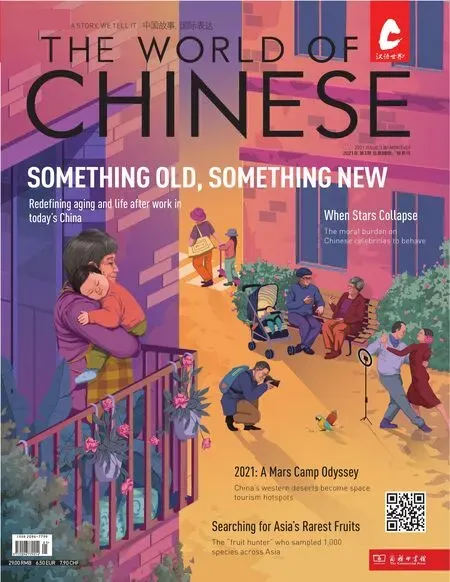WHERE THERE’S A WILL

YOUNG CHINESE ARE BREAKING CULTURAL TABOOS TO MAKE END—OF—LIFE DECISIONS
This April, a Shanghai college freshman who identified herself as “Xiao Hong” made headlines by drafting a will at the China Will Registration Center (CWRC), leaving over 20,000 RMB in savings to a friend who had supported her through a difficult time.
Within days, a hashtag related to Xiao Hong’s will received over 200 million views and 10,000 comments on microblogging platform Weibo.Many netizens mistakenly thought Xiao Hong had developed a terminal illness,or opined that she was too young to make a will—its close association with death makes will-writing a taboo subject in Chinese culture.
However, the number of young Chinese who have made wills has multiplied over the last decade as attitudes change toward life and death.According to a white paper released this March by the CWRC,a state-supported institution that offers will-making services, the annual number of registered will-writers born after 1980 (“post-80s”) rose from 73 to 503 between 2017 and 2020, and willmakers born after 1990 (“post-90s”)rose from 55 to 209 (not counting those who make wills on their own,through a notary, or with the help of lawyers or other institutions).
In general, younger generations have become more open to thinking and talking about death, with increasing awareness of the fragility and uncertainty of life.“In the face of great job pressures and social risks,young people with assets regard a will as a plan for their life,” observed Pang Huaxin, a director at the CWRC,in an interview with the Southern Weekly magazine in April.
On Q&A platform Zhihu, blogger Yuejian Muxian’s story about making her will has been applauded by hundreds of users.“Life is full of uncertainty, and [making a will] allows me to make advance arrangements for my property,” the 32-year-old tells TWOC.She first had the idea of will-making while in high school,after a tragedy in her family left her depressed for two years.
While the majority of the elderly write their will to avoid family disputes and simplify the inheritance of physical property and bank deposits, young people do so to prevent their estate from going astray, according to Pang.Post-80s and post-90s often list in their will“virtual assets” that their parents may not be aware of, including money stored in online payment services, or their social media and online gaming accounts.
Online payment platforms like Alipay allow heirs to reclaim the balance in the deceased’s account.In September 2020, Weibo announced it would set the accounts of deceased users into read-only status to protect their rights and privacy.
Will-making in China is seeing overall growth, due to an aging population and increasing awareness around end-of-life decisions.China’s Civil Code, enacted this January, has also made will-making more convenient, as it gives legal recognition to virtual estates and accepts wills in five additional formats—oral, printed, hand-written,video, and audio—to be as valid as a notarized will.
However, according to the estimate of the CWRC, which keeps over 190,000 wills nationwide (mostly from people over 60), less than 5 percent of Chinese have made a will, largely due to sustained cultural taboos.
Afraid of shocking her parents,Yuejian Muxian has not told them about her will.Instead, she emailed several friends to tell them where the will is kept, and has tried to“desensitize” her parents to the idea by commenting on news incidents related to end-of-life decisions.She even started her will with the line, “If I pass away, it will not have been due to suicide.”

